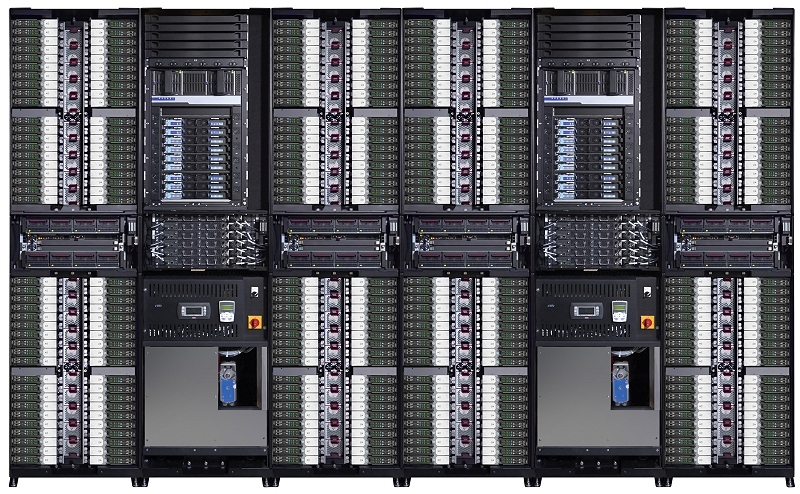HP recently unveiled plans to enter the supercomputing market with two machines under the new Apollo brand, the Apollo 8000 and Apollo 6000. The former claims to be the world's first 100 percent water-cooled supercomputer with dry-disconnect servers while the latter employs up to 160 low-end servers in a single rack to deliver high performance computing while sucking down nearly half as much power as comparable systems already on the market.
HP is no stranger to supercomputers as their hardware components have been used to build high-end machines for years but this marks their first official supercomputer offering.
One of the most cost-prohibitive aspects of owning a supercomputer is paying for the energy necessary to keep it cool. Liquid cooling is far more efficient than air cooling in this respect (1,000 more efficient according to HP) but the trend hasn't caught on with supercomputers just yet due to design complexities and risk of damage.
HP says the watercooling system of the Apollo 8000 should dispel those fears as it is safe and leak-proof. In the unlikely event of a leak, a vacuum inside the copper piping of the system will prevent water from escaping and damaging hardware.
As an added benefit, the warm liquid from the Apollo 8000 can be used to heat other parts of a client's building such as nearby office space.
HP was unable to offer up pricing for either system based on the simple fact that there are too many configuration options.
